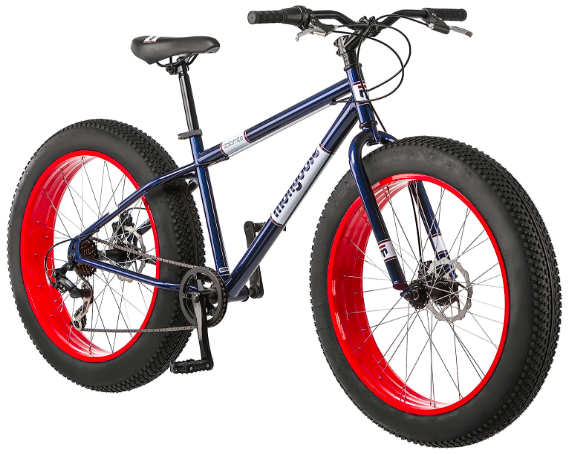Mountain biking is not only an exhilarating and adventurous outdoor activity but also provides numerous health benefits.
Whether you are a beginner or an experienced rider, hitting the trails on a mountain bike can have a positive impact on your overall well-being.
In this article, we will delve into the various health benefits of mountain biking and explore why it has become a popular choice for fitness enthusiasts and adventure seekers alike.
Physical Fitness and Cardiovascular Health
Engaging in mountain biking regularly offers significant advantages for your physical fitness. The intense uphill climbs and challenging terrains require a considerable amount of effort, thereby helping to strengthen your muscles and improve endurance. As you navigate through uneven paths and rough terrains, your leg muscles, especially quadriceps, hamstrings, and calves, are engaged and strengthened. This not only tones your lower body but also improves your overall balance and stability.
Moreover, mountain biking is an excellent cardiovascular workout that gets your heart pumping. The continuous pedaling, especially during uphill climbs, elevates your heart rate, thereby improving your cardiovascular health. Regular cardiovascular exercise, such as mountain biking, helps in reducing the risk of heart diseases, high blood pressure, and stroke. Additionally, it boosts your lung capacity and enhances oxygen circulation throughout your body, resulting in better overall fitness levels.
Some specific benefits of mountain biking for physical fitness and cardiovascular health include:
- Strengthening of leg muscles, including quadriceps, hamstrings, and calves
- Improved overall balance and stability
- Enhanced endurance and stamina
- Increased heart rate and improved cardiovascular health
- Reduced risk of heart diseases, high blood pressure, and stroke
- Enhanced lung capacity and oxygen circulation
Weight Management and Calorie Burn
For those looking to shed a few pounds or maintain a healthy weight, mountain biking can be an effective and enjoyable form of exercise. It is estimated that an hour of moderate-intensity mountain biking can burn between 500 to 1000 calories, depending on factors like body weight, terrain difficulty, and speed. As you navigate through challenging trails, your body is constantly engaged, requiring significant energy expenditure.
Regular mountain biking helps in increasing your metabolic rate, even after you finish your ride. This means that your body continues to burn calories at a higher rate even at rest, aiding in weight management and fat loss. By incorporating mountain biking into your fitness routine, you can enjoy the benefits of weight control and improved body composition.
Some specific benefits of mountain biking for weight management and calorie burn include:
- Significant calorie burn during each ride, ranging from 500 to 1000 calories per hour
- Continuous engagement of the body, leading to increased energy expenditure
- Increased metabolic rate, resulting in continued calorie burn even after the ride
- Effective aid in weight management and fat loss
- Improved body composition and overall fitness levels
Joint Health and Low Impact Exercise
Unlike other high-impact activities like running or playing sports, mountain biking is a low impact exercise that puts less stress on your joints. The smooth, fluid motion of pedaling reduces the risk of joint injuries and is highly beneficial for individuals with joint conditions or those recovering from injuries. Moreover, the cushioning effect of riding on off-road trails helps absorb shock, leading to less strain on your joints.
Mountain biking also promotes the lubrication of your joints, which helps in reducing stiffness and preserving joint health. The repetitive motion of pedaling stimulates the production of synovial fluid, a natural lubricant that nourishes your joints, allowing for smoother movement and preventing degenerative conditions such as osteoarthritis.
Some specific benefits of mountain biking for joint health and low impact exercise include:
- Reduced risk of joint injuries and less strain on joints
- Beneficial for individuals with joint conditions or recovering from injuries
- Cushioning effect of riding on off-road trails, minimizing joint impact
- Promotion of joint lubrication and reduction of stiffness
- Preservation of joint health and prevention of degenerative conditions
Mental Well-being and Stress Relief
Engaging in mountain biking not only benefits your physical health but also contributes to your mental well-being. Being surrounded by nature and breathing in fresh air while exploring scenic trails can have a profound effect on your mood and overall happiness. The stress-relieving benefits of outdoor activities like mountain biking are well-documented.
Riding a mountain bike requires focus, concentration, and quick decision-making skills, which helps in diverting your mind from daily stressors and providing a sense of mental clarity. The adrenaline rush experienced while navigating through challenging terrains also releases endorphins, the feel-good hormones, which can boost your mood and reduce symptoms of anxiety and depression.
Some specific benefits of mountain biking for mental well-being and stress relief include:
- Immersion in nature and exposure to fresh air, promoting positive mood and happiness
- Diversion of mind from daily stressors through focus and concentration
- Enhancement of mental clarity and cognitive function
- Release of endorphins, the feel-good hormones, leading to improved mood
- Reduction of symptoms associated with anxiety and depression
Full-Body Workout and Muscle Toning
Mountain biking engages various muscle groups, providing a full-body workout. While your legs and glutes are the primary muscles involved in pedaling, the constant balancing and maneuvering require the activation of core muscles, including abdominals, obliques, and lower back. This results in improved core strength and stability.
Furthermore, your upper body muscles, such as arms, shoulders, and chest, are engaged while steering, controlling the handlebars, and tackling obstacles. This well-rounded engagement of muscle groups during mountain biking leads to overall muscle toning and development, giving you a more sculpted and fit physique.
Some specific benefits of mountain biking for full-body workout and muscle toning include:
- Engagement of leg muscles, including glutes, quadriceps, hamstrings, and calves
- Activation of core muscles, including abdominals, obliques, and lower back
- Involvement of upper body muscles, such as arms, shoulders, and chest
- Improved core strength and stability
- Overall muscle toning and development, resulting in a sculpted physique
Increased Mental Agility and Coordination
As you navigate through various trails and terrains, mountain biking demands a high level of mental agility and coordination. The constant evaluation of obstacles, quick decision-making, and precise movements required while riding contribute to improved mental acuity and reflexes.
The challenge of mountain biking not only tests your physical abilities but also enhances your mental alertness. You become more adept at assessing the environment, adapting to changing circumstances, and strategizing your movements. These enhanced cognitive skills and improved coordination can have a positive impact on your day-to-day activities and overall quality of life.
Some specific benefits of mountain biking for increased mental agility and coordination include:
- Development of mental acuity and quick decision-making skills
- Enhancement of reflexes and adaptability to changing circumstances
- Improved cognitive function and mental alertness
- Heightened ability to assess the environment and strategize movements
- Positive impact on day-to-day activities and overall quality of life
Conclusion
Mountain biking offers a plethora of health benefits, making it an excellent choice for individuals seeking a challenging yet fulfilling outdoor activity. From improving cardiovascular fitness and joint health to boosting mental well-being and enhancing overall strength, the advantages of mountain biking are undeniable. So, grab your mountain bike, explore the trails, and experience the many physical and mental benefits that this exhilarating sport has to offer.
FAQ
1. What are the physical fitness benefits of mountain biking?
Mountain biking strengthens leg muscles, improves balance and stability, enhances endurance and stamina, and improves cardiovascular health.
2. Can mountain biking help with weight management?
Yes, mountain biking can aid in weight management and calorie burn. It can burn between 500 to 1000 calories per hour and increases metabolic rate, leading to continued calorie burn even after the ride.
3. Is mountain biking a low impact exercise?
Yes, mountain biking is a low impact exercise that puts less stress on your joints. It reduces the risk of joint injuries and promotes joint lubrication and reduced stiffness.
4. How does mountain biking benefit mental well-being?
Mountain biking promotes mental well-being by providing stress relief, enhancing mental clarity, and releasing endorphins, the feel-good hormones. It also diverts the mind from daily stressors and improves mood.



